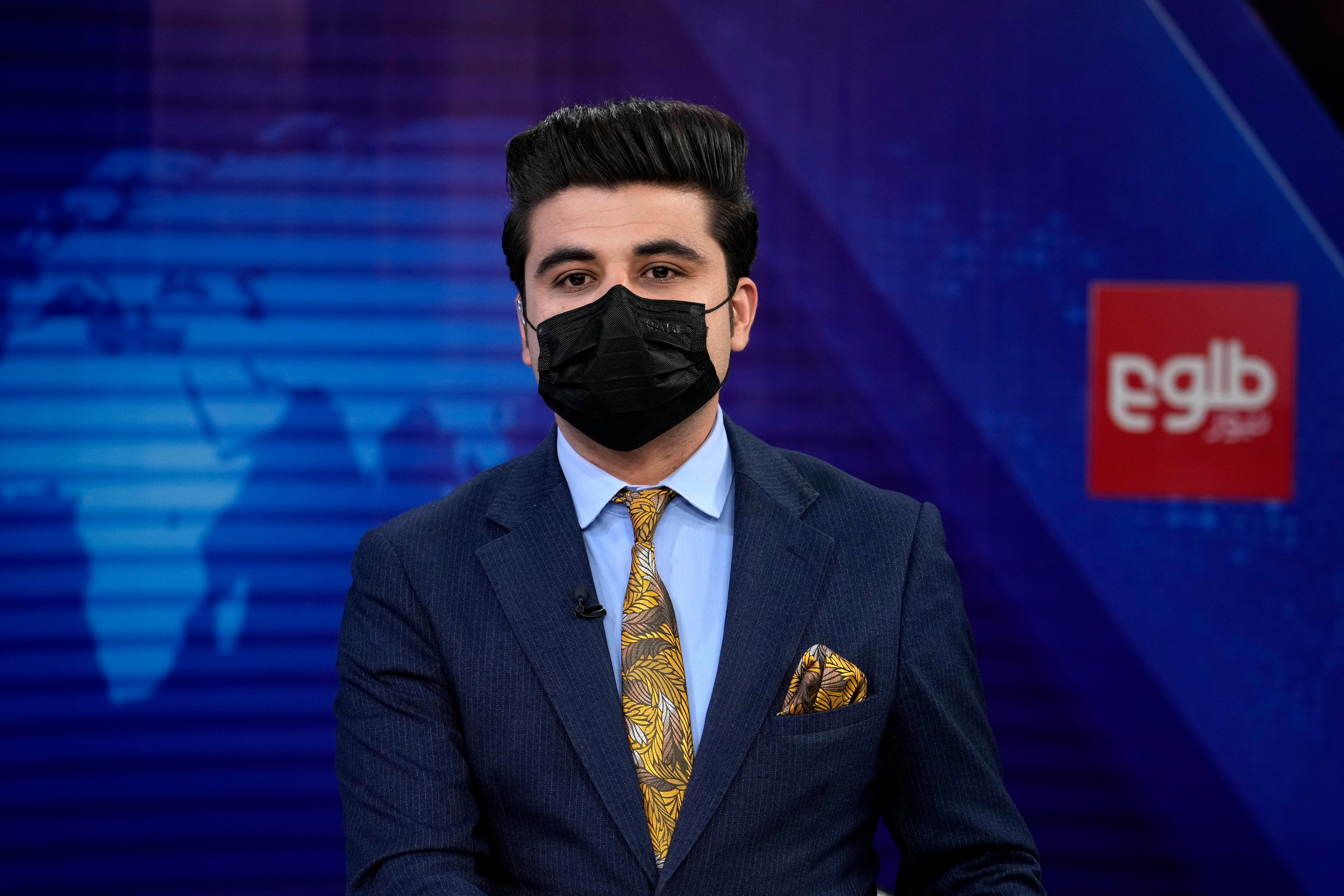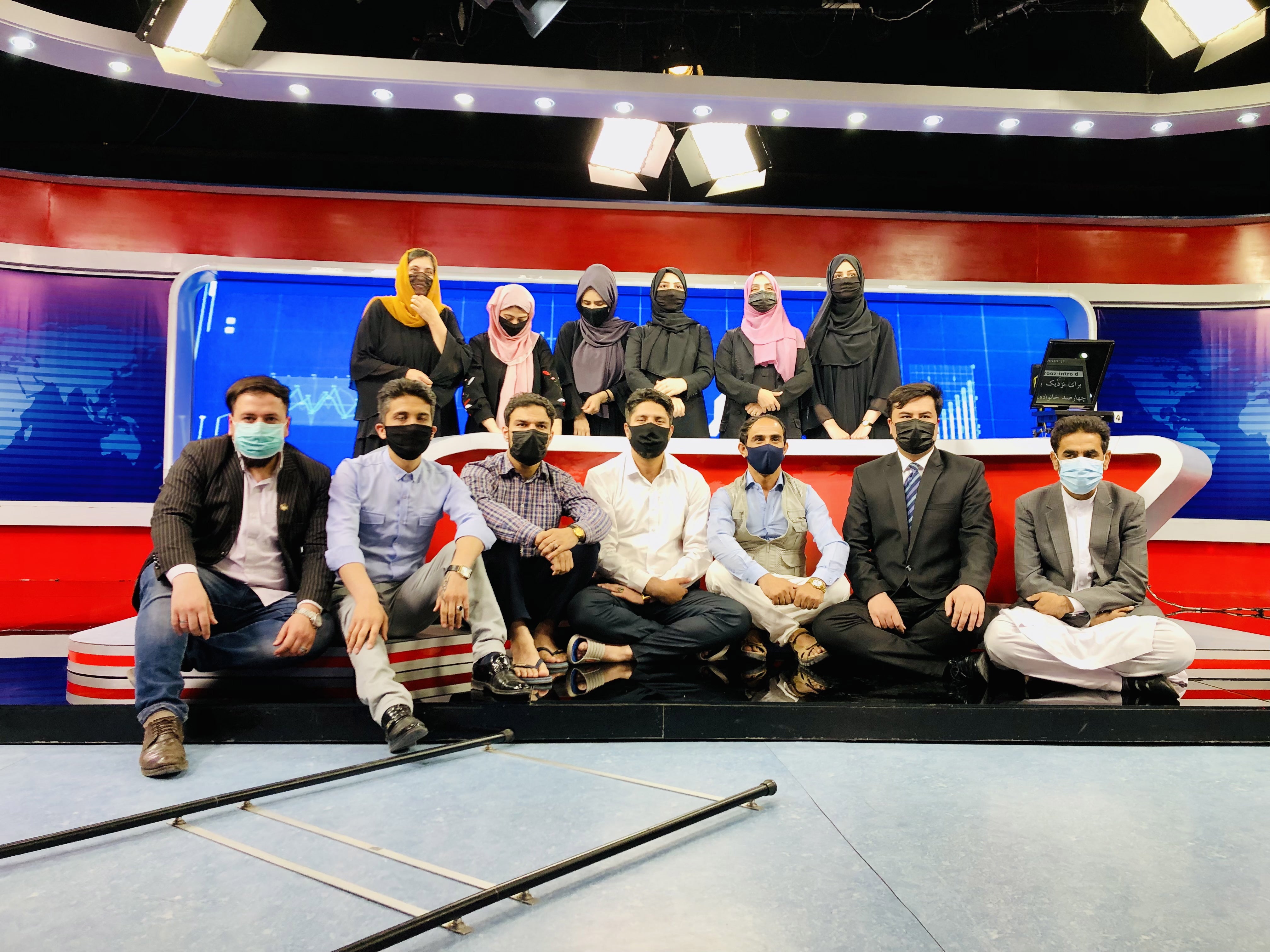Male Afghan journalists covering faces on live TV to protest against Taliban ban on women showing faces
‘The rule blatantly violates women’s rights to freedom of expression, as well as personal autonomy and religious belief,’ say campaigners

Male journalists in Afghanistan have covered their faces while broadcasting live on air to protest against the Taliban’s order for female colleagues to cover their faces on TV.
The gesture of solidarity comes after the Taliban ramped up their attack on women’s rights earlier in the month - ordering women and older girls to cover their faces while out in public and try to remain at home.
Female Afghan journalists have voiced frustration that presenting lengthy shows on TV is tricky while having to keep your face covered.
The new social media campaign, dubbed #FreeHerFace, has also seen Afghan male journalists sharing photos where they have their faces covered.
Over the weekend, the Taliban’s notorious Ministry of Vice and Virtue ordered all female TV presenters to cover their faces, warning “the decision was final and that there was no room for discussion.”
Heather Barr and Sahar Fetrat, who both work in Human Rights Watch's Women's Rights Division, said: “The rule blatantly violates women’s rights to freedom of expression, as well as personal autonomy and religious belief.
“It will also prevent access to information for people who are deaf or hard of hearing who lip read or rely on visual speech cues to help them understand people speaking.”

In an article about the ordeal, the campaigners argued female journalists are “just the latest casualties in what has become the most serious women’s rights crisis” around the world.
“But the Taliban are not immovable, and coordinated pressure has the potential to impact their decisions. Donors and governments owe it to Afghan women and girls to do more to defend their rights,” they said.
Men who work as presenters on Tolo, which is the most popular TV network in Afghanistan, could be seen wearing surgical masks. While male presenters on other TV networks in the country also covered their faces in protest against the Taliban’s order.
Earlier in the month, the Taliban ordered all Afghan women to wear a burqa that veils their faces while out in public. At a press conference in Kabul, a spokesperson for the hardline Islamist group said a woman’s father or the male family member closest to her would be visited and eventually jailed or sacked from government jobs if it was discovered that she had infringed the new regulations.
The Taliban has escalated restrictions since seizing power of the Afghan capital, Kabul, in mid-August as US and British forces withdrew.
The group, which previously ruled the country, has also blocked women from the workplace and secondary education and barred them from taking part in all sports.
Join our commenting forum
Join thought-provoking conversations, follow other Independent readers and see their replies
Comments

Bookmark popover
Removed from bookmarks